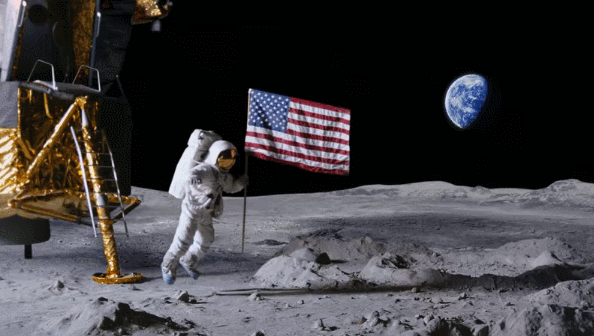Escape Goat
Member
Jan 19 (2006) - New Horizons left Earth
Dec 6 - Emerges from hibernation
Jan 15 - Enters orbit of Pluto for detailed observations
New Horizons will write the book (not re-write) on Pluto and the Kuiper belt because no probe has studied them in any detail. No probe has gone as far out save for V'Ger...er Voyager. It will deliver better photos than even Hubble can deliver (see below).
I hope they find a Mass relay.


Dec 6 - Emerges from hibernation
Jan 15 - Enters orbit of Pluto for detailed observations
New Horizons will write the book (not re-write) on Pluto and the Kuiper belt because no probe has studied them in any detail. No probe has gone as far out save for V'Ger...er Voyager. It will deliver better photos than even Hubble can deliver (see below).
I hope they find a Mass relay.
On the final stretch of a speedy nine-year trek through the solar system, NASA’s New Horizons spacecraft will be awakened from hibernation Dec. 6 for an encounter with Pluto, a mysterious world that has captured imaginations and will soon be revealed in reality.
The plutonium-powered probe — roughly the size and shape of a grand piano — is heading for a flyby 6,200 miles from Pluto’s icy, unexplored surface on July 14, 2015.
But scientists plan months of increasingly detailed observations of Pluto before then, beginning in January with long-range imaging to help navigators keep New Horizons on course for the make-or-break encounter.
“We’re at the very tail end of this very long cruise across almost 3 billion miles of our journey from the Earth to the Pluto system,” said Alan Stern, principal investigator on the New Horizons mission from the Southwest Research Institute in Boulder, Colo. “On Dec. 6, we’ll wake New Horizons up from its last hibernation and we will be on the doorstep of the Pluto system. Encounter starts just a few weeks later on Jan. 15.”
New Horizons launched aboard an Atlas 5 rocket on Jan. 19, 2006. The craft left Earth at record speed and reached Jupiter in February 2007 to pick up even more velocity, using the giant planet’s immense gravity field to slingshot toward Pluto.
The $700 million mission is the first to visit a halo of dark, icy worlds loitering outside the orbit of Neptune. Known as the Kuiper belt, the ring includes Pluto and thousands more objects which remain mostly undiscovered.
Stern touts New Horizons as the last in a wave of “first reconnaissance” missions dispatched from Earth since the 1960s to explore the planets.
The mission, Stern said, “is going to be truly historic, not in rewriting the textbook, but in writing the textbook about the Pluto system and Kuiper belt.”
“This is really quite an epic journey,” Stern said. “Three billion miles across the entirety of our planetary system, from the inner planets to the middle solar system to the third zone — the Kuiper belt — and for the first time. No voyage like this has been conducted since the epic days of Voyager, and nothing like it is planned again.”
Ground controllers put New Horizons to sleep intermittently through the probe’s nine-year cruise. The hibernations save time, Bowman said, allowing scientists to focus on planning the mission’s future scientific endeavors instead of tracking its flight through the void of space.
Computer commands already installed on the spacecraft will automatically wake up New Horizons on Dec. 6, then it will take more than four hours for radio signals from the probe to reach Earth at light speed.
Officials at the New Horizons control center at the Johns Hopkins University Applied Physics Laboratory in Maryland should receive confirmation of the spacecraft’s wakeup around 9:30 p.m. EST on Saturday (0230 GMT Sunday), according to Alice Bowman, mission operations manager at APL.
Engineers plan around six weeks of activities — memory checks, instrument calibrations, navigation updates — to prepare New Horizons for the official start of its encounter phase in January.
"All this is being done to prepare for the big show, which begins Jan. 15, 2015,” Bowman said.
Seven instruments on New Horizons will take pictures and measure everything from the composition of Pluto and its moons, to the nature of Pluto’s atmosphere, to how Pluto is influenced by the sun, which appears 900 times dimmer than the sun seen from Earth.
“We begin the observatory phase in January, and it continues until about April,” Stern said. “By May, we will be delivering imagery that’s better than Hubble, and it just gets better every week from there on in until we storm the gates of Pluto on Bastille Day, July 14, 2015.”








